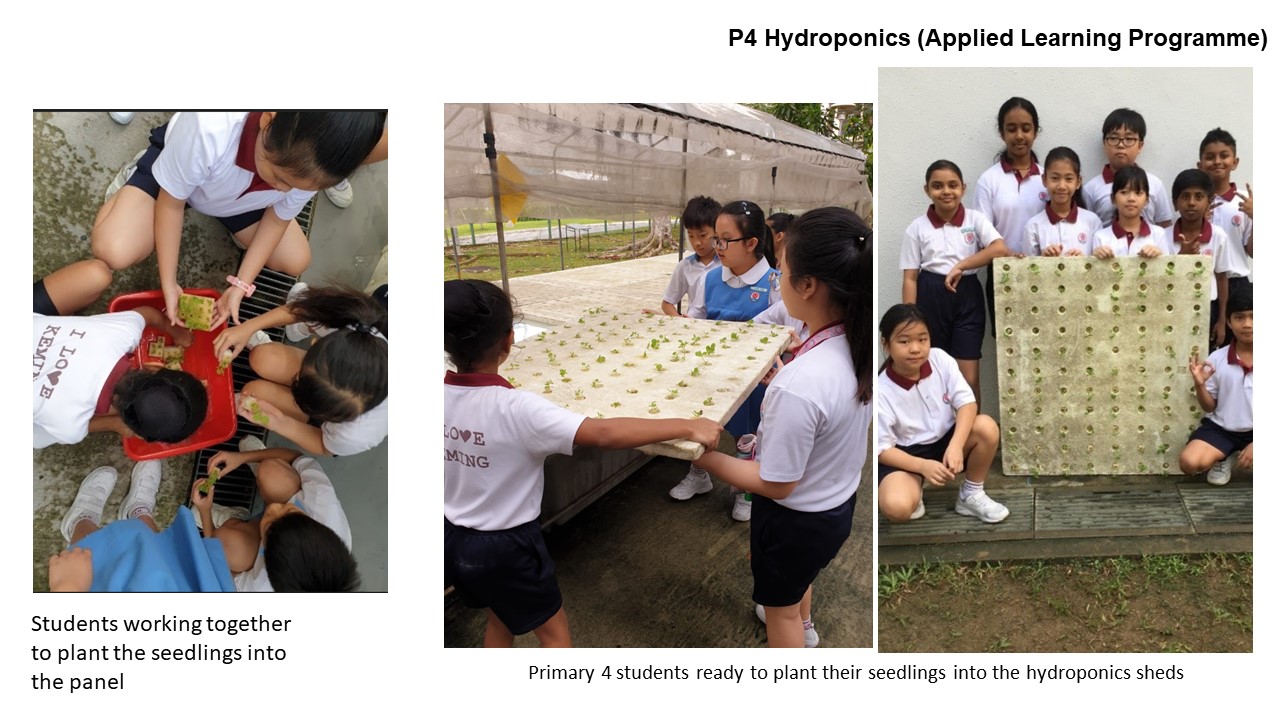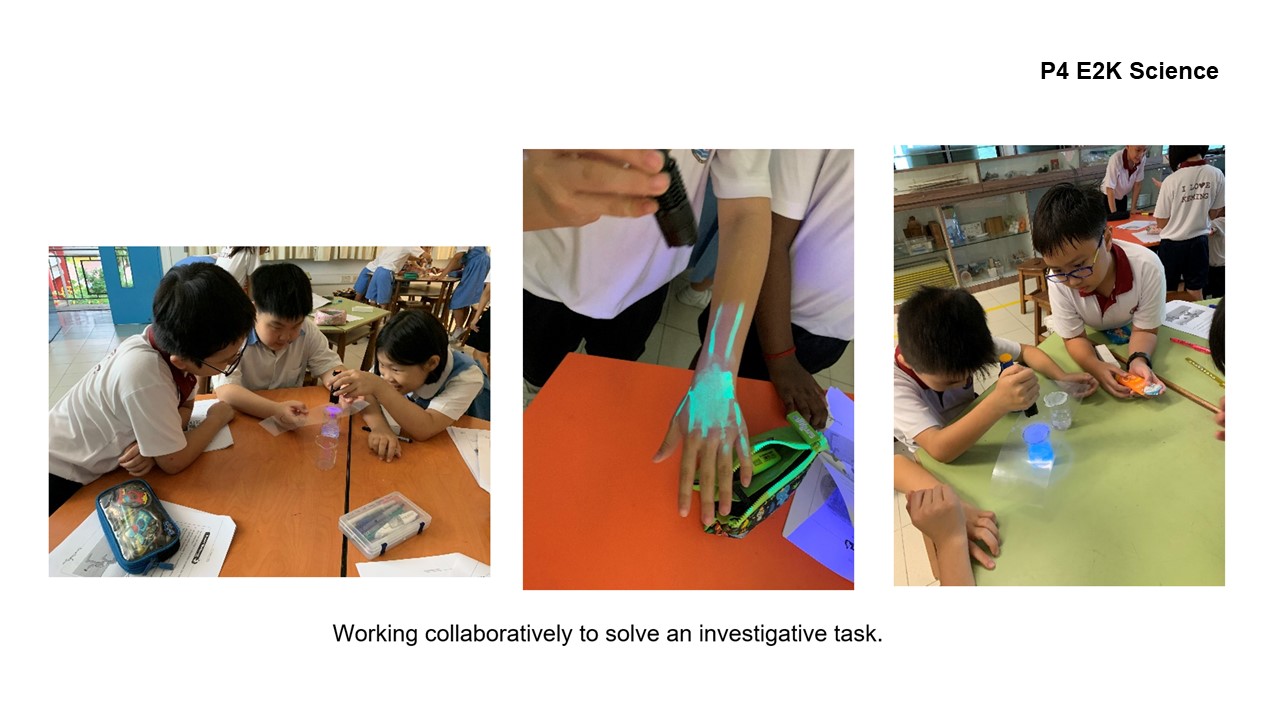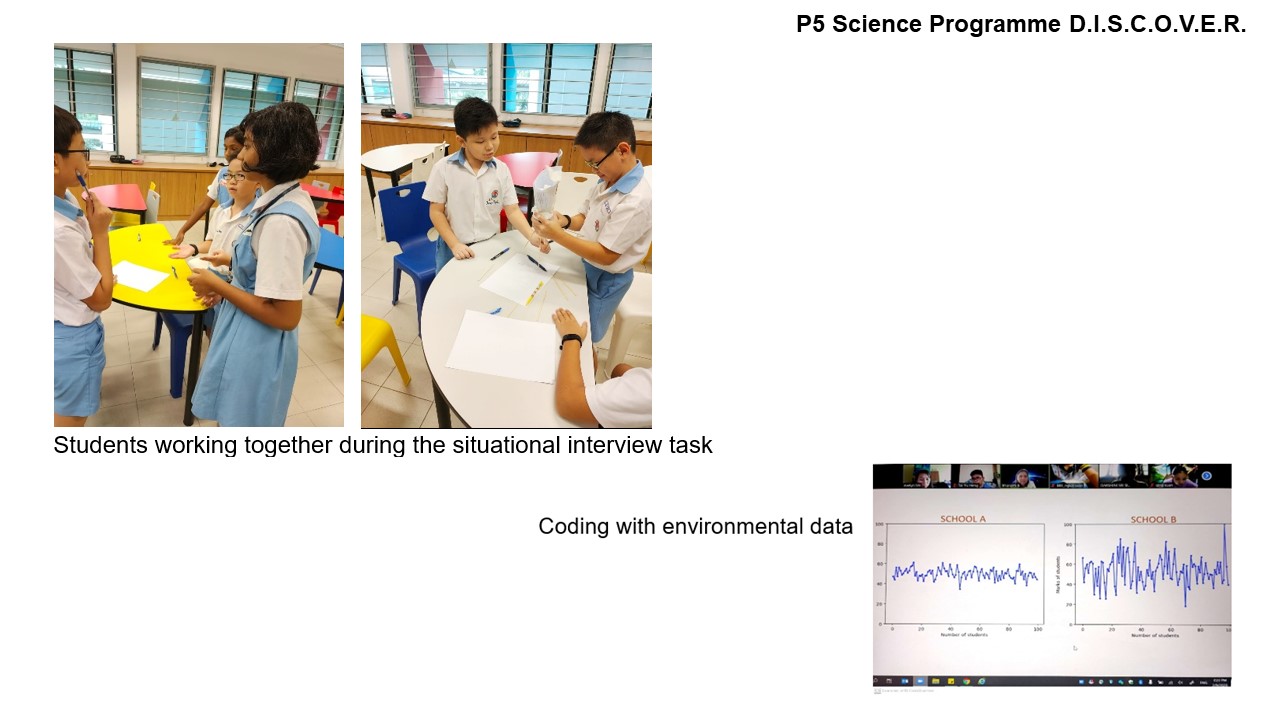Science Department Programmes
a) P4 Hydroponics (Applied Learning Programme)
Primary 4 Kemingnites participated in the Project Work which involves growing of plants in hydroponics. The students are involved in placing the seedlings on the board and allowing the seedlings to grow in nutrient solution. As this project is inquiry in nature, students were tasked to investigate the growth of crops under different light settings such as using white light and purple light on different plants. The students will observe the growth of the seedlings over a period of 5 weeks before they harvest the vegetables, taking note of the ideal conditions for plant growth. Students were given leadership roles as they work on their project work.
Through this Project Work, students benefitted greatly through experiential learning and sharing their experience with their peers. Teachers facilitated the student’s learning by providing guidance into the investigation process. Students learnt the importance of producing sufficient food in order to be self-sustained and as a result ensuring food security in Singapore.

b) P4 E2K Science
In the E2K Science programme, students learnt to work collaboratively to solve an investigative task. They bounced off ideas with each other as they devised a plan.
The students were excited to listen and learn from each other and they respected each other’s opinions. They considered all aspects before making a decision. In the process, the students learnt resilience and harmony. They were inspired to explore deeper applying the skills that they have learnt.

c) P5 Science Programme D.I.S.C.O.V.E.R. (Developing Inquirers of Science, Innovators of Experimental Research in Keming Primary School)
D.I.S.C.O.V.E.R. programme provides an authentic learning experience for students to be engaged in environment-related issues. Under the guidance of experts, two scientists from A*STAR will mentor the Primary 5 students with inputs from the real-world context, to study about the environmental issues in Singapore.
This year, the students went through a situational interview test where they demonstrated good teamwork and the right attitudes to problem-solving. They learnt more about the Scientific Process, the Engineering Design Process and how to gather and analyse data.
With Safety Management Measures in place since April, it was challenging for the students.
Students in the programme demonstrated their love for learning when they diligently attended sessions on Zoom, and even tried out coding to generate graphs from large environmental database.


